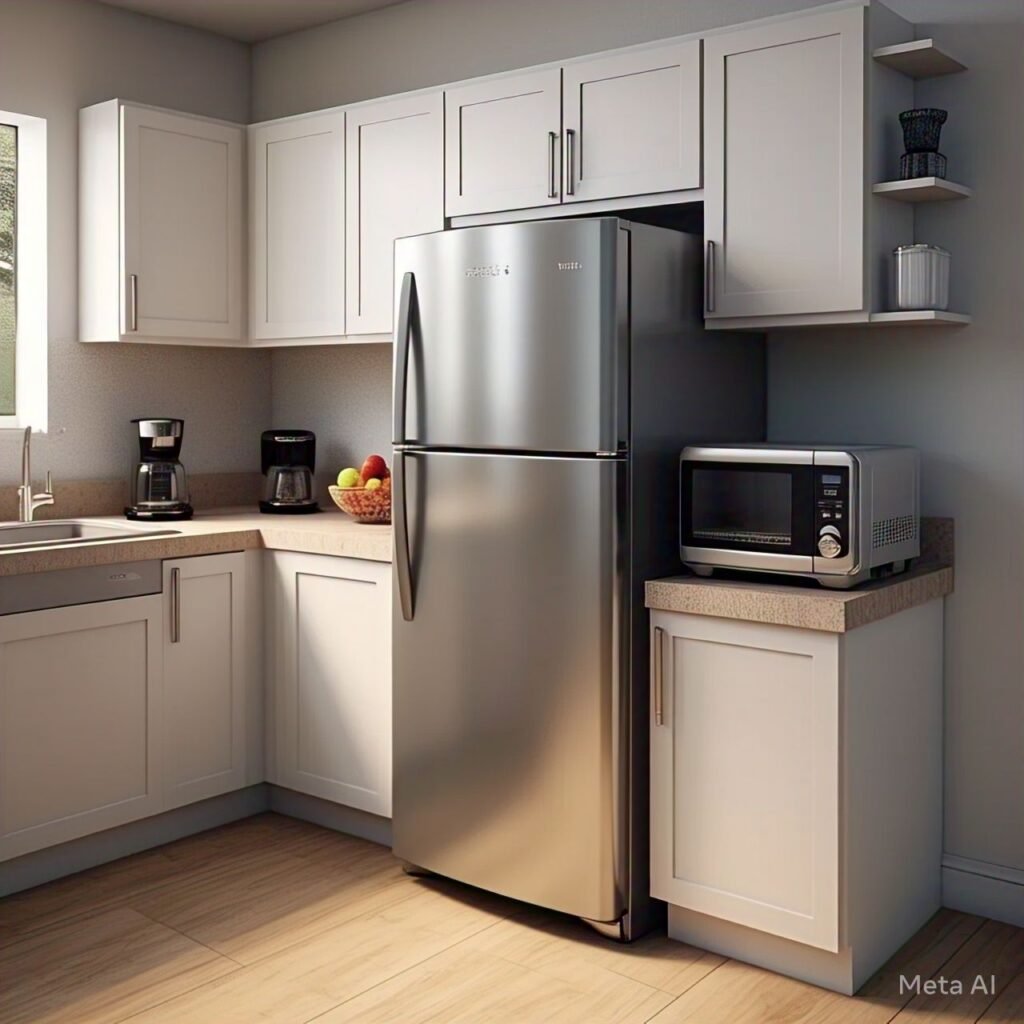When an appliance breaks down, the first thing most homeowners think about is: How much does appliance repair cost? Understanding the potential costs and factors that influence them can make a huge difference in how you approach the repair process. Whether it’s a broken refrigerator, a malfunctioning washing machine, or a faulty dishwasher, the repair cost can vary greatly. In this guide, we’ll explore the factors that contribute to appliance repair costs, offer typical price ranges for common repairs, and provide tips on how to reduce costs and make the best decision for your appliance.
Understanding Appliance Repair Costs
Before diving into specifics, it’s important to have a general understanding of appliance repair costs. The price of repairing an appliance depends on several factors including the type of appliance, the nature of the repair, and even the region in which you live.
In general, appliance repair costs can range from $100 to $400. However, more complex repairs or high-end appliance brands could cost much more. So, if you’re wondering how much appliance repair costs, it’s essential to assess the nature of the problem and whether it’s worth fixing.
Let’s break down the various elements that can affect the price.
Factors That Affect Appliance Repair Costs
- Type of Appliance
The type of appliance plays a significant role in determining repair costs. Some appliances are more complex than others, and their repairs may require specialized parts and expertise. For example, refrigerator repairs tend to be more expensive than washing machine repairs because refrigerators have complex cooling systems, and parts like compressors can be costly. On the other hand, a dishwasher or oven might be cheaper to repair since they typically have less complex systems. - Nature of the Repair
The cost of appliance repair is also influenced by the type of repair required. Minor repairs like replacing a door seal or fixing a simple hose are usually on the lower end of the price spectrum. However, more complicated repairs such as fixing a malfunctioning compressor in a refrigerator or replacing a motor in a washing machine can be costly due to labor intensity and expensive parts. - Age of the Appliance
The age of the appliance can be another major factor in repair costs. Older appliances tend to require more maintenance and repairs, especially when parts become harder to find. Sometimes, technicians might need to source used or discontinued parts, which can drive up the cost. Additionally, appliances that are over 10 years old may be at risk of other problems, meaning the overall cost to repair them might outweigh the cost of purchasing a new one. - Brand of the Appliance
High-end or luxury brands often use more specialized or expensive parts. For example, if you own a premium brand refrigerator or washing machine, the cost to repair it can be significantly higher than repairing a standard model. Luxury appliance brands might also require technicians with specialized training, further adding to labor costs. - Labor Costs
Labor is another significant factor in appliance repair costs. Depending on where you live, labor rates can vary greatly. Technicians in larger cities or metropolitan areas tend to charge higher rates compared to those in rural areas. Additionally, if the technician is highly skilled or specializes in certain types of appliances, the labor rate may be higher. - Availability of Parts
The cost of replacing broken parts is another critical component of repair pricing. Common parts like door seals or heating elements tend to be affordable, but more specialized parts like compressors, circuit boards, or motors can be expensive. The availability of these parts also affects cost—if they need to be ordered, shipping fees can add additional costs to the repair.
Typical Costs for Common Appliance Repairs
Let’s explore some common appliance repairs and their typical cost ranges. These prices are averages based on national data, though the actual cost will depend on the factors mentioned above.
- Refrigerator Repair
Repairing a refrigerator typically costs between $200 and $400. If a more significant issue arises—such as replacing the compressor or repairing the cooling system—the costs can increase dramatically, ranging from $500 to $1,000 or more. A malfunctioning refrigerator is not only inconvenient but also a health risk, so it’s important to address the issue as soon as possible. - Dishwasher Repair
Dishwasher repairs generally cost between $100 and $300. Common issues include clogged filters, faulty door latches, or broken heating elements. If the motor or control board fails, the repair can cost upwards of $400. In many cases, dishwashers are relatively simple to repair, but parts like the pump or motor can be expensive. - Washing Machine Repair
Washing machine repairs usually cost between $150 and $350. If the drum is broken or the motor fails, repairs can push the cost to the higher end of that range. A malfunctioning washing machine can cause significant inconvenience, so it’s important to address issues before they escalate. - Dryer Repair
Dryer repairs typically cost between $100 and $300. The most common issues include broken belts, faulty thermostats, or malfunctioning heating elements. However, if the issue is with the motor or control board, repairs can exceed $400. - Oven or Stove Repair
Oven and stove repairs vary greatly, depending on whether the issue is with the heating elements, gas lines, or internal controls. On average, these repairs can cost between $100 and $400. More complex issues—like faulty gas connections—can make the cost rise dramatically.
DIY vs. Professional Appliance Repair: Which Is Right for You?
When your appliance breaks down, one of the first questions to ask is whether it’s worth attempting a DIY repair or calling in a professional. While DIY repairs can save you money, there are several important considerations.
When DIY May Be a Good Option
Simple repairs like unclogging a dishwasher, replacing a door seal on a refrigerator, or fixing a broken lightbulb in the oven can often be handled by a skilled DIYer. If you’re comfortable with basic tools and have some technical knowledge, you may be able to save on labor costs by doing the repair yourself.
When Professional Repair is Necessary
For more complicated repairs, such as electrical issues, gas-related problems, or major component replacements, it’s always best to hire a professional. Not only can improper repairs be dangerous, but they can also void warranties, making the situation worse.
Risks of DIY
While DIY repairs can save money upfront, they also come with risks. Incorrectly repaired appliances can pose safety hazards, and some problems may worsen if not handled by a professional. Additionally, DIY repairs may void your warranty, potentially leading to even higher expenses down the line.

How to Reduce Appliance Repair Costs
Appliance repairs are often inevitable, but there are several ways to minimize the costs associated with fixing your appliances.
- Regular Maintenance
Performing regular maintenance on your appliances is one of the best ways to avoid costly repairs. For example, cleaning refrigerator coils, checking dishwasher filters, and performing routine dryer vent cleaning can extend the life of your appliances and prevent larger issues from arising. Regular maintenance can help prevent problems from turning into expensive repairs. - Get Multiple Quotes
If you’re concerned about how much appliance repair costs, it’s a good idea to obtain quotes from different technicians or repair services. Doing so allows you to compare prices and services. Keep in mind that the lowest price isn’t always the best value—ensure the technician has good reviews and is properly licensed. - Consider Extended Warranties or Service Plans
Some appliances come with an extended warranty or service plan that covers repair costs. If your appliance is still under warranty, take advantage of it to avoid out-of-pocket expenses. Many manufacturers also offer service plans that cover future repairs for an additional fee. - Weigh Repair vs. Replacement
In some cases, repairing an appliance might not be worth the cost, especially if the appliance is old or has frequent issues. In these situations, replacing the appliance with a new, energy-efficient model may be more cost-effective in the long run. For example, if your refrigerator is over 10 years old and the repair cost is nearly the same as purchasing a new one, replacement might be the better choice.
How to Choose the Right Appliance Repair Service
Choosing the right repair service can make a big difference in the cost and quality of the repair. Here’s how to make sure you’re working with a trustworthy technician:
- Check Reviews and References
Look for online reviews or ask friends and family for recommendations. A reputable company will have positive feedback from past customers. Take note of any mentions of high-quality work, good customer service, and fair pricing. - Verify Licensing and Insurance
Ensure the technician is licensed and insured. This is especially important if the repair involves complex electrical or gas systems. A licensed professional will adhere to safety standards and have the necessary training to perform the job correctly. - Get a Written Estimate
Request a written estimate before the work begins. A written estimate should outline the cost of parts, labor, and any potential additional charges. This can help you avoid surprise fees later.
Conclusion: How Much Does Appliance Repair Cost?
So, how much does appliance repair cost? The answer depends on several factors including the type of appliance, the nature of the repair, and your location. On average, appliance repair costs range from $100 to $400, though more complex repairs or high-end models may cost much more.
By understanding the factors that contribute to appliance repair costs and being proactive in maintenance and repairs, you can make more informed decisions about how to handle a broken appliance. Whether you choose to repair or replace, always work with a trusted professional to ensure the job is done correctly and efficiently.
